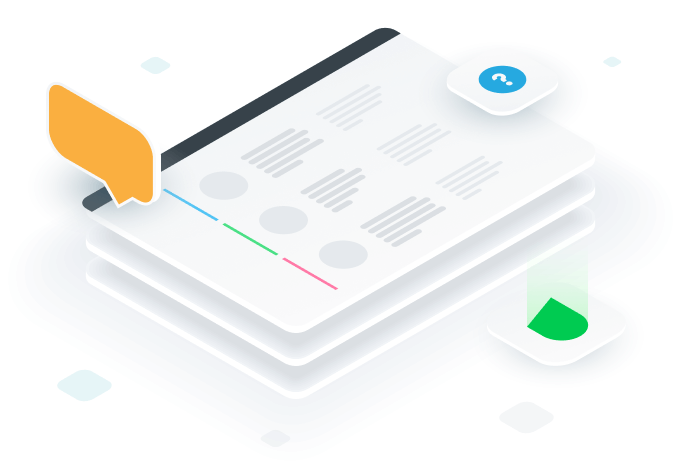
Open source and community have always been in the DNA of Netdata, with the Agent starting as a very popular open-source project. Since then, a lot has changed, with Netdata maturing into a company, and the Netdata Agent finding its place as an open-source project in a wider offering that redesigns the monitoring experience from the ground up.
While we had a very active GitHub repository, with the majority of the Netdata Agent’s original team actively moderating the discussions and talking with users, we started a more concentrated initiative to manage our community in spring 2020. We launched our first forum using NodeBB, a great open-source project, and the community grew substantially, outgrowing the forum software. At the same time, we were able to identify areas of friction in the community journey. Removing that friction became a centerpiece of our strategy during Q3 2020.
Apart from removing friction, another important decision that we made has to do with GitHub. It is a great place for any open-source project to begin, amassing contributors from all walks of life, interacting via PRs and GitHub issues, in an impromptu medium for discussion.
While GitHub issues may work for some highly technical communities, especially those built around developer tools, it is not the ideal heart of the community for all technical projects.
- Discussions are centered around “problems” or GitHub issues.
- Labels are not ideal for organizing information and efficiently grouping discussions.
- GitHub is daunting to less technical users.
- GitHub offers little to no tools for community managers to nurture the community.
Community 2.0
The new community, or community 2.0, is a fresh view of the community efforts we started in spring 2020. Building on the knowledge and insights we gathered thus far, some of which I shared in the previous section, we have several initiatives in the works.We started with redesigning the user experience for the community member, by clarifying the use of each platform and tying that platform to a specific user goal. We wanted to make things as explicit as possible and remove as much cognitive load as possible. Thus, each platform is tightly connected with the rest of the community platforms, so that we are sure that the user will always easily find the resource that they are looking for. The end design creates a closed system that can be summarized in the diagram below.
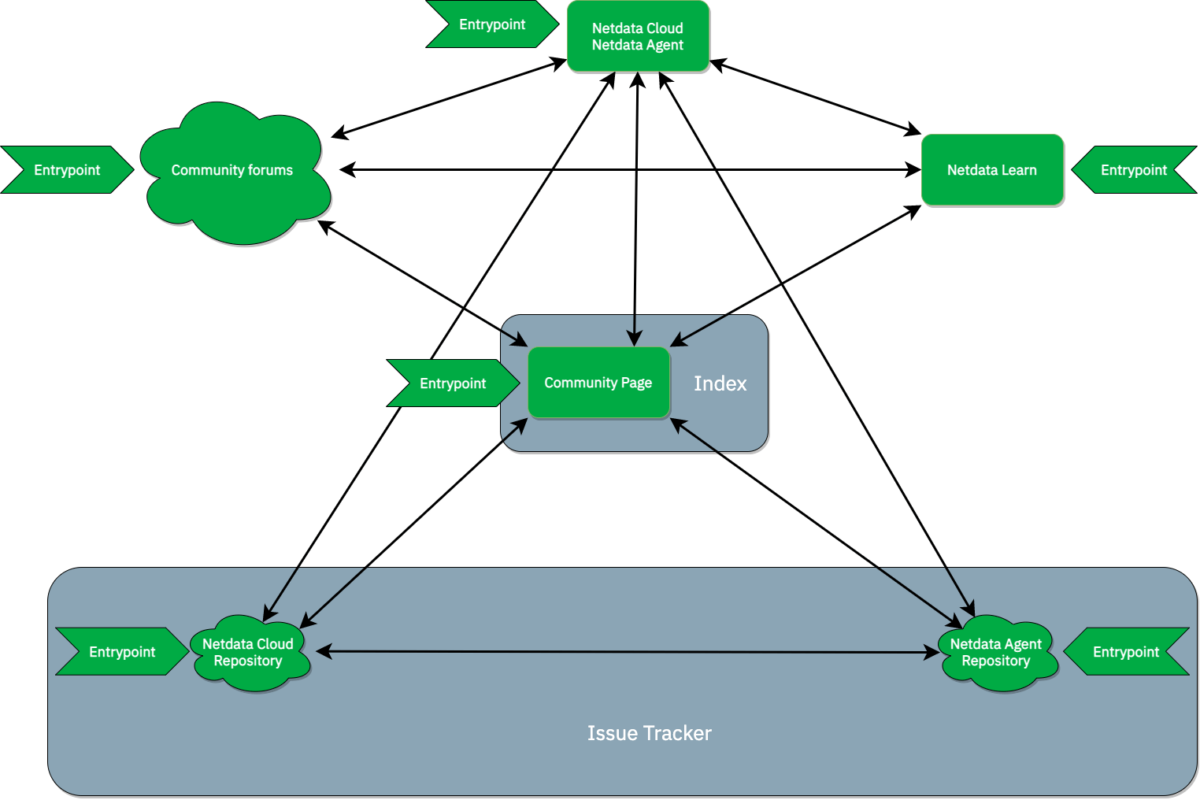
Let’s briefly see all the facets of the community:
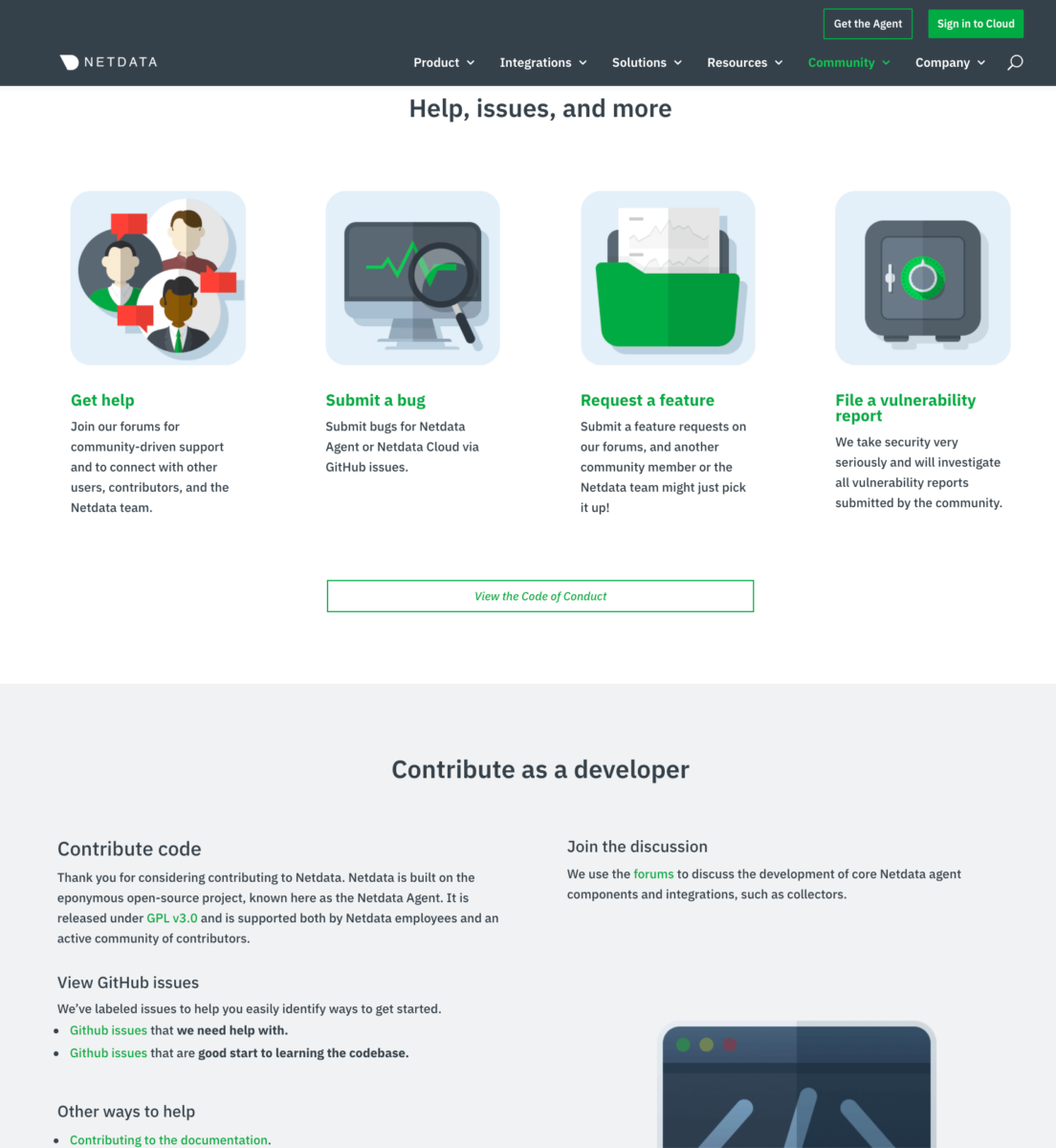
Community page

Our community page now serves as an index for the entire community. We deconstructed the community user journey and mapped all the different goals that a community member might have, and then structured the community page accordingly. By explicitly listing every user goal, we hope that the user will be able to easily find the next step in the journey. They should be able to interact in the manner that they want, with less friction, lowering the barrier of entry for community engagement.
Community forums
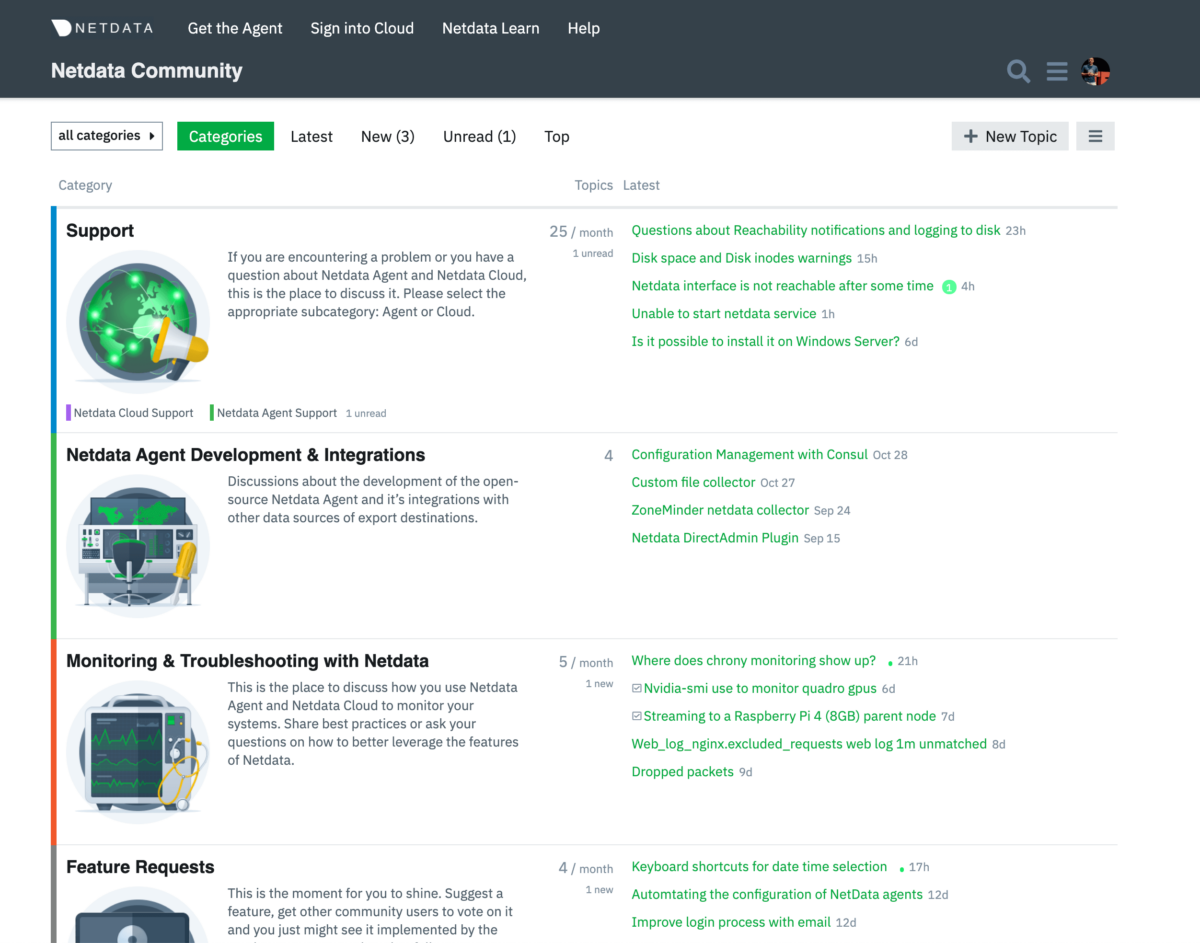
We launched the forum back in the summer, but without clarifying how we are going to use the forums in relation to user interaction on GitHub. With the re-launching of our forums, with different software and a different philosophy, we’re making the forums the centerpiece of Netdata’s wider community.
As we mentioned above, having decided that GitHub can no longer accommodate our needs, we migrated most of the GitHub functionality, such as discussion, support, and feature requests, to the forums. They are based on the open-source software Discourse, and they will serve as the core of our community for years to come.
We designed the forums to be easy to use, with intuitive categories that will let us run different community programs on top of them. But like with everything in technology, iteration is king. If you have any ideas, leave us some feedback in the community forums category.
GitHub
With us turning our focus to the forums, we needed to define a new role for our main repository at netdata/netdata on GitHub. We decided that it will serve as our public issue tracker, where users can submit bugs or follow the progress of bugs already acknowledged by the Netdata team. Moreover, GitHub will continue to serve as the place for discussions over specific contributions (PRs) and code commits, but other than that, everything is taking a trip to our community forum. Finally, we created another repository, named netdata/netdata-cloud, that will serve as a public issue tracker for Netdata Cloud.To better integrate GitHub into the rest of the community ecosystem, when opening a new GitHub issue, users will find options for many different community-related goals that link to resources outside of GitHub, such as the forum.
Netdata Learn
Netdata Learn is the centerpiece of all things educational about Netdata. We launched a new version of the website with updated information architecture so that the user can easily navigate our educational resources. This architecture is based around the primary actions that Netdata users want and need to take—configure, collect, monitor, store—and is designed like a multi-part guide for the entire Netdata journey.Netdata Learn is also the home of our contribution guidelines, our handbook for contributing to Netdata, either in code, collector guidance, or in documentation. Thus, it is important that the website is easily accessible from both the product, the forum, and the index.
Product
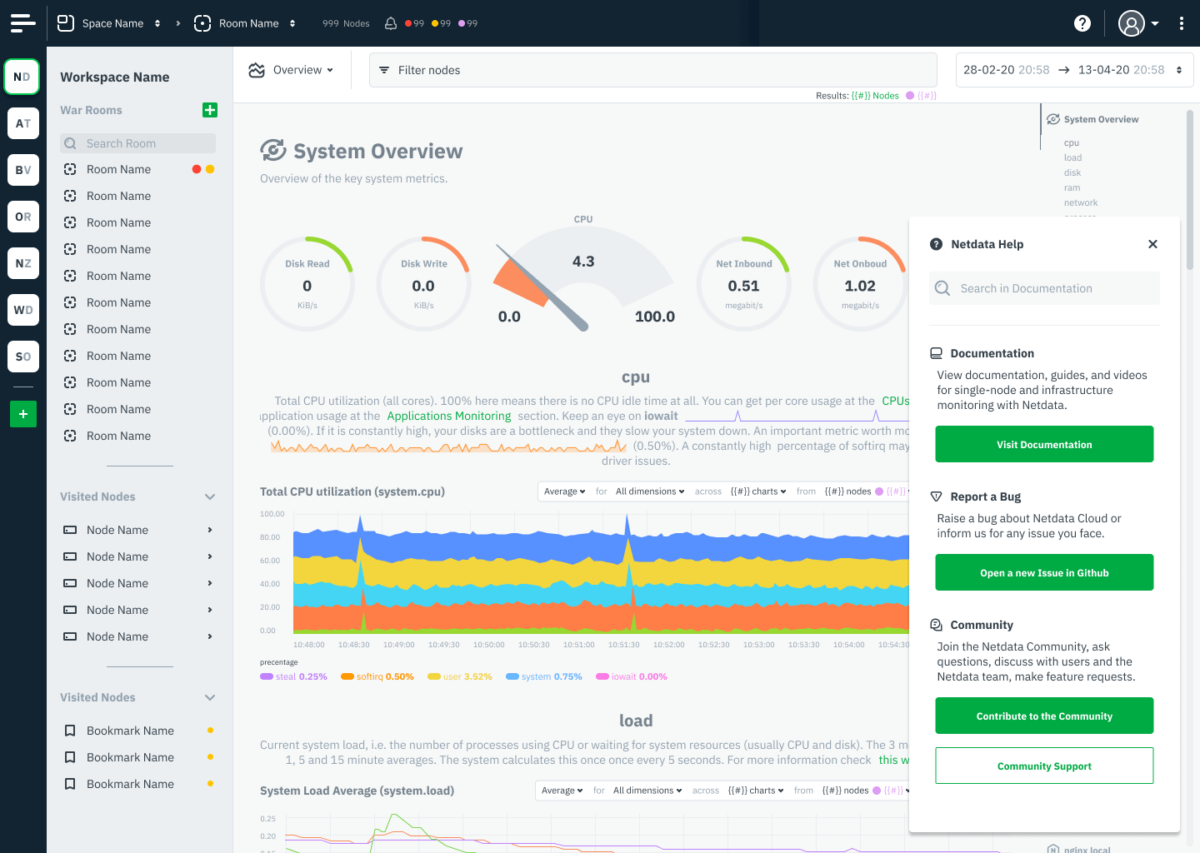
Community 2.0 couldn’t leave out some product features as well, since we want the product to be at the core of the experience. In the near future, we will ship a new help widget, which will link users to different community platforms, depending on their goal.
This widget will ship to both the Netdata Agent and Netdata Cloud.
Tooling
Developer Relations is an elusive term, almost as elusive as the definition for an online community itself. I like how Mary Thenvgal puts it:A group of people who not only share common principles but also develop and share practices that help individuals in the group thrive.There is a lot to unpack in this term, but the centerpiece is that developer relations is about building relationships in online communities, and the relationships are inherently difficult to quantify into metrics.
Thankfully, we decided to invest in tools, such as Orbit and SavannahHQ, which help us not only gather important health metrics about the community in the aggregate but also help us map the journey of each community member. They also enable us to track all the interactions in all the different platforms that we use (mainly GitHub and Discourse). Finally, we can leverage the insights we get and act proactively, creating content and documentation for the pain-points of the community while introducing new processes and systems that leverage the community’s strengths.
Other initiatives
At the same time, we have launched some inward-looking initiatives, nurturing the community-centric culture for our team that everybody wants, but few companies truly have. We will be launching our “Enabler of the Month” initiative, which will reward the most active of employees in our community, while also we are preparing an engagement handbook for our team members, so as to facilitate the active participation of our engineers.Stay tuned to our community forums, since we intend to share more information over the next weeks!
